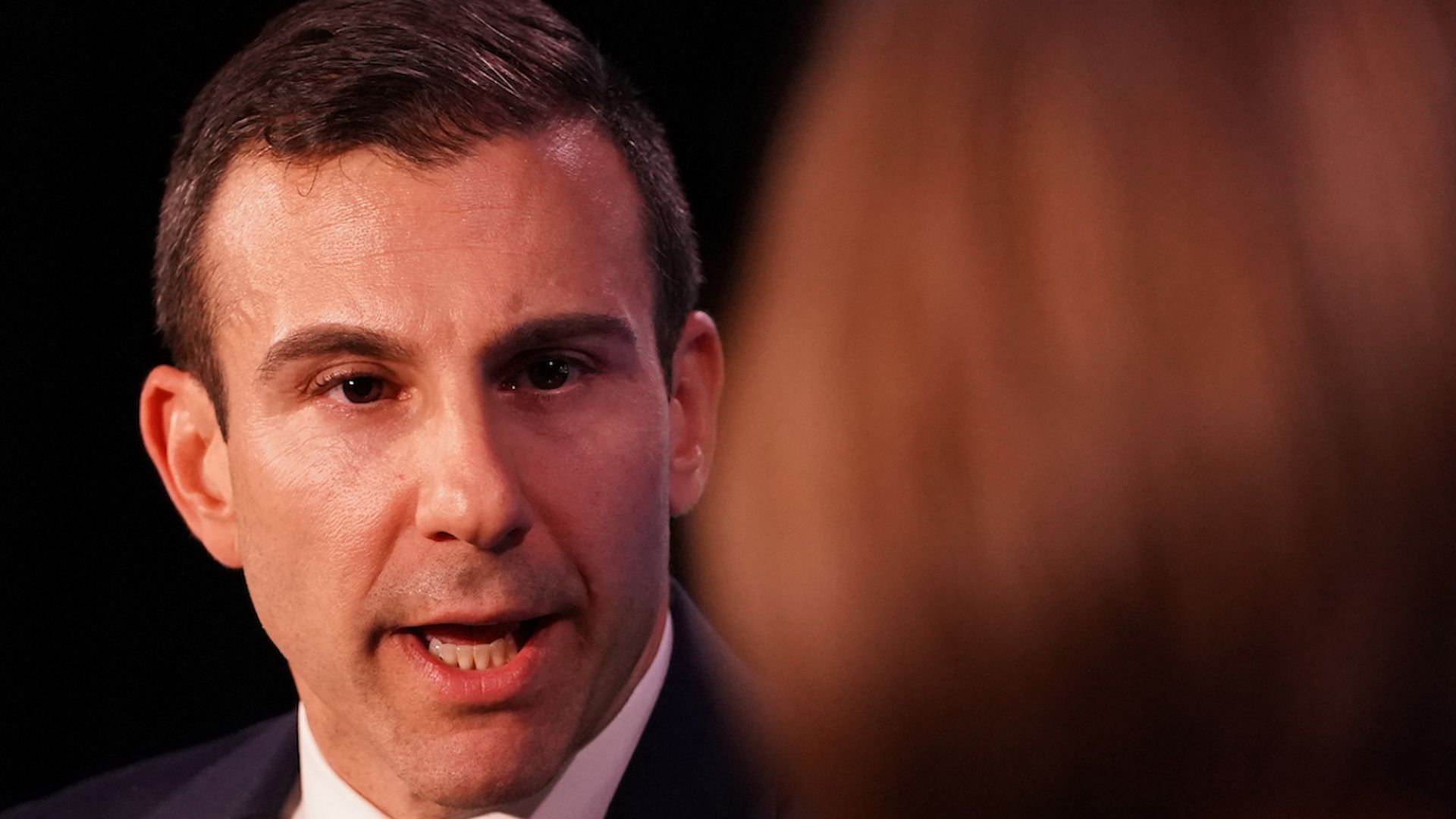Amazon HQ2 arrival to spur new transit projects in D.C. area
Add Axios as your preferred source to
see more of our stories on Google.

Jeff Marootian, D.C. director of transportation, speaks at an Axios event Dec. 10. Photo: Jeffrey Snyder for Axios
The District of Columbia's transportation chief Jeff Marootian expects Amazon's new HQ2 to spur new transportation projects to help ease congestion and incentivize more sustainable transit.
Driving the news: Amazon got final approval for its second headquarters in Arlington County last week. Local residents have expressed concern that the new National Landing development and influx of new workers trying to get there every day will lead to more gridlock.
What he's saying: Marootian says those concerns "are opportunities for us to deliver new projects like new bridges, new pedestrian and bicycling facilities, to expand and improve on our metro system," adding that Amazon's presence "gives us that incentive and gives us a platform to build those exciting projects."
D.C. has many transit irons in the fire:
Scooters: The District DOT this month selected four companies — Uber-owned Jump, Lyft, Skip and Spin — to deploy up to 10,000 scooters starting in January.
- That cuts the current number of operators in half (Bird, Lime, Bolt and Razor won't be returning), but nearly doubles the number of scooters allowed.
- "There are just so many companies that are offering these services, in order to manage that successfully, we felt very strongly that there needed to be fewer companies operating in the District," he said.
Curbside management: The city entered a three-month pilot project with curbFlow, a curbside reservation company, to rein in the chaos on the curbs.
- The result was a 64% reduction in double parking. Marootian said the city is "definitely thinking about" a longer-term engagement with similar platforms, but he didn't commit.
Congestion pricing: Highly trafficked parts of the city like Navy Yard and Chinatown already have dynamic parking pricing, meaning the cost of parking increases during peak times.
- D.C. is conducting a study to consider other congestion pricing schemes.
Also coming are more dedicated bus lanes, priority traffic signals for buses and redesigning busy corridors, like K Street Northwest.
Go deeper:
